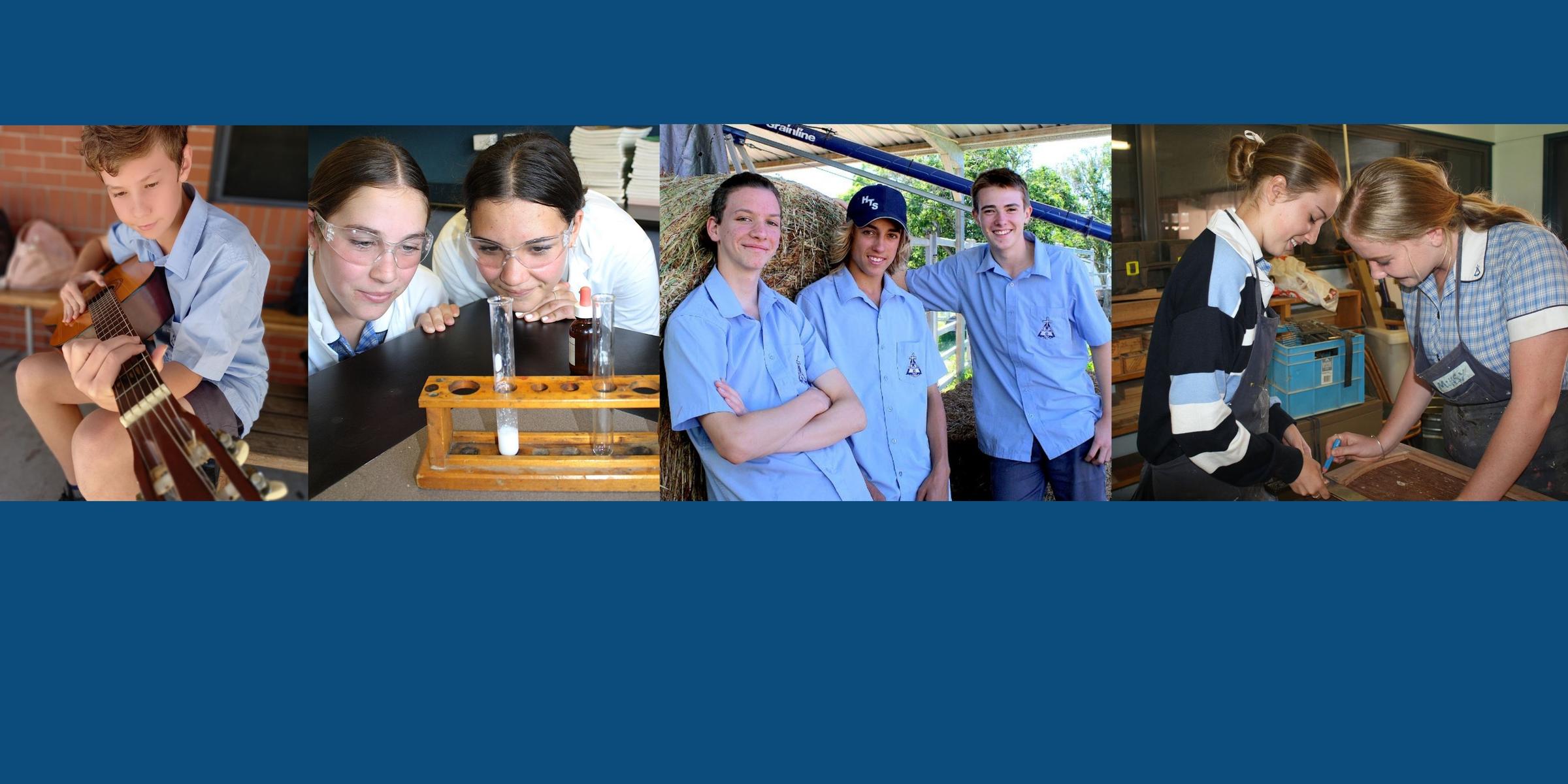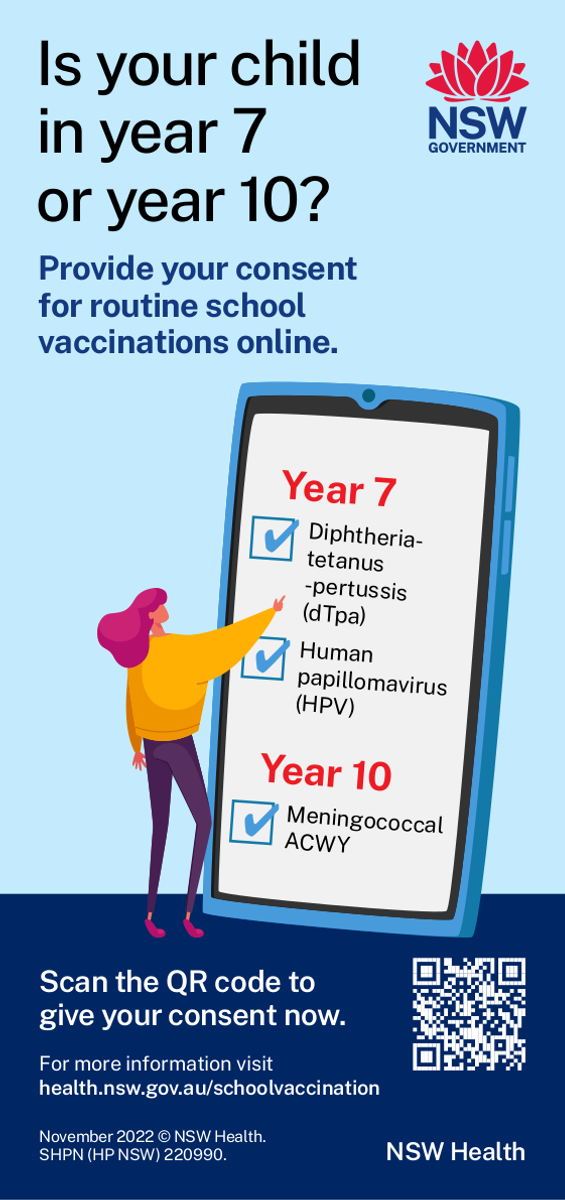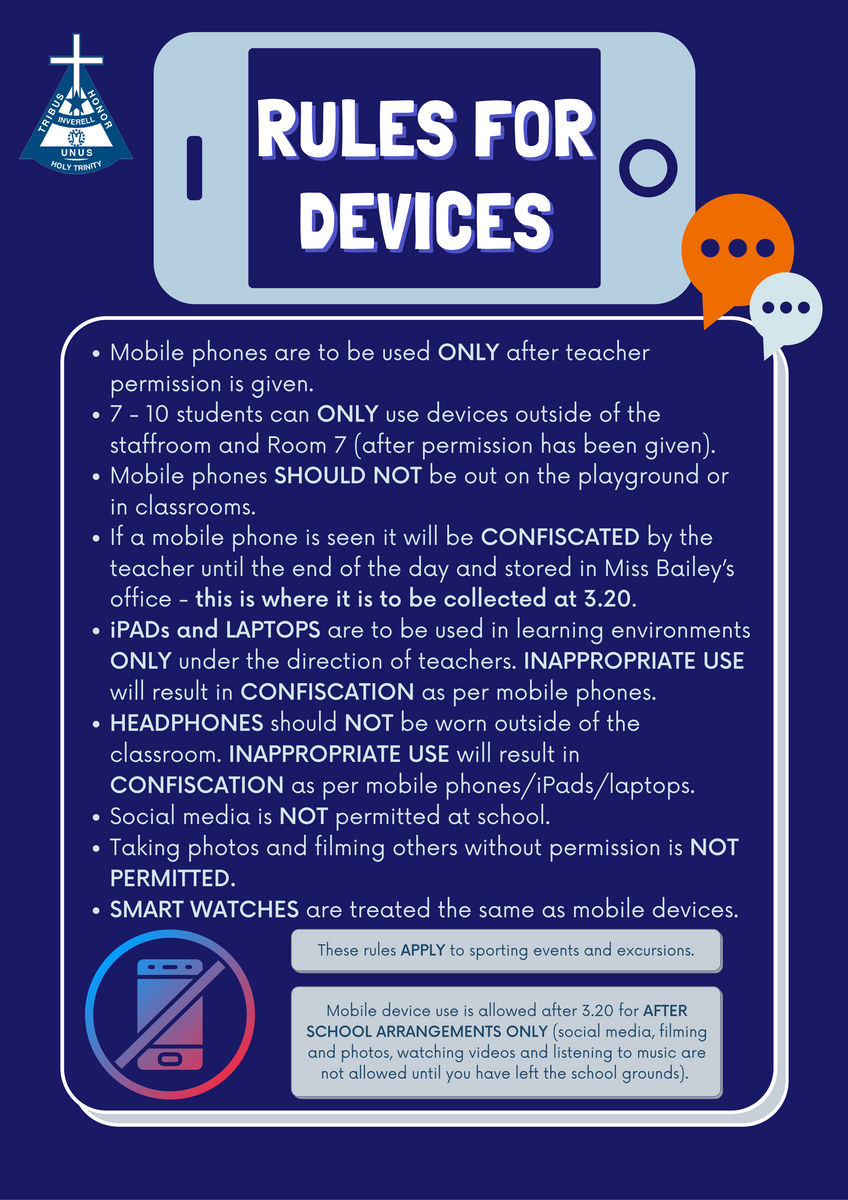SECONDARY NEWS
From the Assistant Principal
Miss Kim Bailey
kbailey@arm.catholic.edu.au

SECONDARY NEWS
From the Assistant Principal
Miss Kim Bailey
kbailey@arm.catholic.edu.au
New students have received invitations for the welcome barbeque that will be held prior to the first school social for 2024, on Thursday 29 March. The barbeque will take place in the Secondary Library Quadrangle, commencing at 6.00 pm. The Secondary staff are looking forward to meeting as many of the new families as possible. Please return the reply slip so that catering arrangements can be finalised.
A Year 7 iPad information session will be held at 6.30 pm for all parents. At the conclusion of this, iPads will be distributed to families along with a user agreement. If you are unable to attend and collect your child’s iPad and sign the agreement, the iPads will be available for collection from the Front Office on Friday 1 March. The iPads must be collected by an adult and will not be available to collect prior to the information session.
A social for all secondary students will be held on Thursday 29 February. The Secondary staff will be supervising the social. It commences at 6.30 and finishes at 8.00 pm. As usual, we expect that students will be dropped off and picked up by parents. The collection area is in front of the Science Labs.
Students will receive a Term 1 Progress Report at the end of Week 6.
The purpose of the Term 1 Progress Report is to provide a snapshot of your child's progress at this stage of the school year. If you would like to discuss any aspect of this report, you may contact Miss Bailey or the subject teacher.
Respectful behaviour includes interactions with staff and peers. It also includes the use of school equipment and resources.
Focused on learning provides an indication of a student's level of contribution to the learning environment and responsibility for their learning as well as consideration for the learning of others.
Completion of set tasks includes all classwork, homework and assessments.
Preparation is being ready to participate and engage in class each day. Being organised for learning involves doing home study, revision, completing required work, bringing the necessary equipment including uniform and iPads.
It was a busy time last week for the members of the Holy Trinity Show Team as they put the finishing touches into their animals in preparation for the Inverell Show, which was held on the weekend. For several students, this was their first show experience. The team are to be congratulated for their efforts in training and preparation. Thanks to Mr & Mrs Townsend for the time and effort they also put into the cattle and preparing the students.
In 2024 the following vaccines will be offered:
In Year 7, students are offered free vaccines for diphtheria-tetanus-pertussis (dTpa) and human papillomavirus (HPV). In Year 10, students are offered the meningococcal ACWY vaccine.
If your child is in Year 7 or Year 10 this year, you can now provide online consent for their routine school vaccinations.
Vaccination will only be provided at school if consent has been received.
How to provide consent:
If you or your child do not have a Medicare card, consent can still be provided by requesting a paper-based consent form directly from your child’s school.
The benefits of providing consent online:
• easily update your child’s details
• receive SMS and/or email notifications when vaccinations are given
• faster upload of vaccination records to the Australian Immunisation Register (AIR).
For more information on routine school vaccinations, please visit
www.health.nsw.gov.au/schoolvaccination.
If you require information in your language, please visit:
www.health.nsw.gov.au/immunisation/Pages/school_vaccination_language.aspx


Transition to Year 7 Assessment is an online assessment for students that helps provide information for teachers on the literacy and numeracy skills of students at the beginning of Year 7.
The assessment covers key literacy and numeracy skills that are important to a student’s success in all subjects in high school. Students come to high school with a range of experiences, skills and abilities in literacy and numeracy. It is important that teachers have current information about their students so that they can plan programs and lessons that best support the learning needs of every student.
The Transition to Year 7 Assessment will be completed at school during class time and will take place between Weeks 4 and 6, Term 1. Mr Koch will be coordinating and supervising the testing.
No preparation is needed for this assessment. Its purpose is to provide our teachers with additional information to best support the teaching of your child. The Transition to Year 7 Assessment is just one of a range of assessments the school uses to assess students.
Students will be asked to bring headphones or earbuds that plug into a computer to enable them to hear audio during the assessment.
Please contact the school if you have any questions regarding the Transition to Year 7 Assessment.
If you have any questions or concerns about your child's learning or wellbeing, please make contact with Miss Bailey, your child's Pastoral Care teacher or their subject teacher. We are only too happy to assist.
Year 7:
7E - Mr Peter Ehsman
7J – Mr Jack Jeffery
7K - Miss Kristina Majetic
7M – Mrs Veronica McCormick
Year 8:
8G - Mr Anthony Gaias
8M - Mrs Christine McLachlan
8T - Mrs Kathy Townsend
8W - Mr Sam White
Year 9:
9C – Miss Claudia Cush
9E - Mrs Angela East
9U - Mr Uebergang
Year 10:
10B - Miss Kim Bailey
10K - Mr David Koch
Students and parents are encouraged to approach the relevant Pastoral Care teacher if they need assistance.
Stage Leaders
Stage 4 - Mr Anthony Gaias
Stage 5 - Mrs Angela East
Miss Kim Bailey
Miss Claudia Cush
Mrs Claudia Dolbel
Mrs Angela East
Mr Peter Ehsman
Mr Anthony Gaias
Miss Alana Goldman
Mrs Mary-Jane Guest
Mrs Malynda Hiscock
Mr Jack Jeffery
Mr David Koch
Miss Kristina Majetic
Mrs Veronica McCormick
Mrs Christine McLachlan
cmclachlan@arm.catholic.edu.au
Mr Matthew Pye
Mrs Jane Taylor
Mrs Katherine Townsend
Mr Blake Uebergang
Mrs Carrie Watchirs
Mr Sam White
Staff can be contacted directly using the email address above or via the Compass portal.


Students are not permitted to use their devices unless instructed by a teacher. This includes both the classroom and the playground. The students are aware of this policy and receive constant reminders in Pastoral Care, their teaching classes and there are also many posters displayed all around the school.
If a student needs to use their device, they must first seek permission from a teacher and use it in an area designated by the teacher. This is usually under their direct supervision or outside the Secondary staffroom.
If students are unable to follow this policy, then their phone is confiscated and placed securely in Miss Bailey's office, where it is collected by the student at the end of the school day.
Teachers record each time a device has been confiscated. After the device has been confiscated for a second time, the device remains at school until it can be collected by a parent/carer.
Here are 5 reasons you can give your child as to why they should start working on their assignments immediately.
1. GET YOUR BRAIN THINKING ABOUT THE TOPIC: Even if your assignment isn’t due for weeks, start thinking about it immediately. At the very least, answer the key starter questions on the day you get your assignment. Even if you are not thinking about it directly, your subconscious will be hard at work.
2. FIND LIBRARY RESOURCES: Although the school or local library will probably not be your main source of reference, you should drop in soon after receiving the assignment. Your teacher will probably have alerted the school librarian to the assignment, and reference books, magazines etc., may well be displayed. These will disappear quickly if the whole class has the same assignment. Books, periodicals, and magazines can sometimes be a useful general overview for an assignment, and they help to clarify a direction as you begin to immerse yourself into the assignment topic. It is not a good idea to only use Google!
3. DISCOVER OTHER RESOURCES: You could also ask your local librarian for any additional direction on where to look for resource material for your assignment. Librarians are often your best source of information. They know how to help people access relevant and appropriate information, in books, the Internet or computer-based references. One of the challenging aspects of Internet-based searches for school students is the complexity, language and purpose of websites, not to mention bias and reliability.
4. STARTING EARLY MEANS MORE TIME TO EXPLORE & ASK FOR HELP IF NEEDED: If you do some initial research on the assignment points you’ve identified through the library, references your teacher may have given you, school textbooks, and general internet search engines, you could find yourself having more direction in your research. For example: Perhaps there isn’t enough information, or perhaps you find you don’t understand important concepts, or perhaps you need to speak to your teacher to get further clarity. If you find this out early, you will still have plenty of time to plan, research, write and present your assignment. Imagine if you didn’t start your assignment for a week or so, and then discovered you needed more guidance. You could easily run out of time.
5. CREATE A SAFETY NET: Starting your assignment immediately will give you a safety net in case you get sick, or something unexpected happens. Assignments usually require a large amount of time; students must plan a strategy or schedule to ensure they are completed. You should always have a schedule that allows for the unexpected.
So get started today!